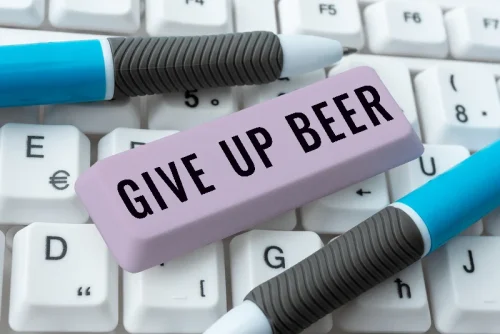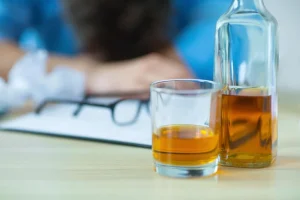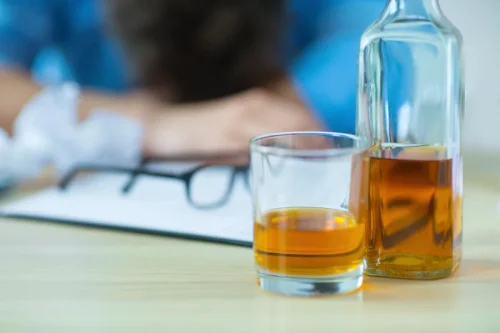
Reaching for hydrating beverages is the best way to alleviate a hangover’s unpleasant effects — but not every liquid fits this bill. The best way to rehydrate quickly is to regain the minerals that were flushed out due to excessive urination. Congeners are more likely to produce a hangover or make a hangover worse. But drinking too much alcohol of any color can still make you feel bad the next morning. Generally, the more alcohol you drink, the more likely you are to have a hangover the next day.
Does rehydration help reduce hangovers?
- Drinking too much too quickly can affect breathing, heart rate, body temperature and gag reflex.
- Therefore, your body becomes less adept at holding on to water over time.
- Having one glass of wine with dinner will likely not cause dehydration.
You may feel the effects of the alcohol sooner, but it can also amplify other effects, including dehydration. Replenish fluids and minimize alcohol dehydration symptoms by drinking at least one glass of water for each alcoholic drink you consume. And while chips and popcorn are mainstays at BBQ’s, it’s best to limit your consumption of them. Too much sodium increases fluid loss as your body tries to flush it out. When you pair this with alcohol, the dehydration does liquor make you dehydrated compounds further. After eating something salty, chase it with some ice tea, lemonade, or even plain water, rather than alcohol.

Symptoms
- The night is off to a great start and you’re catching up with friends and family.
- These foods also have the bonus of being easy on the digestive system if yours is upset from drinking too much alcohol.
- Here’s what you need to know about how alcohol dehydrates the body and how to drink responsibly.
- The Hangover IV is extra hydrating as well, as we know that many of the common symptoms of hangovers are directly due to dehydration.
So, if you’re looking to hydrate quickly after alcohol consumption, tap water probably isn’t the best option. Additionally, dark liquors especially have high contents of congeners and tannins, which studies have shown to increase hangover symptoms (including dehydration). Your body has detectors that can sense both the saltiness of your water, and the volume of the water. If these detectors reckon that you are dehydrated, they send a signal to the posterior pituitary gland, which starts pumping out ADH. The job of ADH is to stop you urinating, so you hang on to your precious water.
Dehydration From Alcohol: 5 Tips to Prevent and Treat It
Some companies use misleading advertising to claim that their products can prevent hangovers. But the only guaranteed way to prevent a hangover is to not drink alcohol. A single alcoholic drink is enough to trigger a hangover for some people, while others may drink heavily and not have a hangover. Hangovers after a single night’s drinking go away on their own.
- As if feeling awful weren’t bad enough, frequent hangovers also are linked with poor performance and conflict at home, school and work.
- Taking electrolytes before drinking alcoholic drinks can prevent alcohol-related electrolyte depletion and dehydration.
- “For some folks with medical conditions such as diabetes, they urinate a lot already based on blood sugar level,” Mieses Malchuk says.
- There are mixed opinions on whether exercise can help your body metabolize alcohol more rapidly (most likely, it can), but it’s worth a try and it’ll likely help you sober up.
Are there any vitamins that can prevent or improve hangovers?

Talk with your healthcare professional if you’re concerned that frequent heavy drinking may lead to serious problems, such as alcohol withdrawal. A hangover is a group of unpleasant symptoms that can happen after drinking too much alcohol. As if feeling awful weren’t bad enough, frequent hangovers also are linked with poor performance and conflict at home, school and work. “Stronger alcohol might provoke more dehydration, but it truly has not been studied enough to know for sure,” she says, pointing to a 2017 study published in Nutrients. That paper summarizes that research into whether stronger alcohol is linked with increased dehydration is inconclusive.
Electrolytes, especially potassium and sodium, play a critical role in fluid balance and facilitate the movement of water into cells and tissues. Dehydration occurs when fluid loss is greater than fluid intake. LivPur Hydration provides you with sodium, potassium, magnesium, and zinc to help rehydrate you quicker to feel better. For proper hydration, we need both replenishment of fluids plus important electrolytes and vitamins. Keep in mind that to offset the low water content and high ABV of liquor, you can opt for a mixed drink with seltzer water.

Check the Alcohol Content
Turns out, some alcohols — and more accurately, how you drink them — can be less dehydrating that other booze-filled beverages. We created our BodyBio E-Lyte concentrate to counteract the effects of dehydration and boost electrolyte and mineral stores to help alleviate symptoms across the board. A meal or snack can help restore some of the nutrients lost from dehydration while soaking up any alcohol still in your digestive tract. Knowing and listening to your own body is the best way to prevent a hydration mishap — or really, any medical mishap.
Why do I feel weird for several days after drinking?
Alcohol can trigger diuresis (increased urine output), leading to dehydration and other bodily imbalances, all of which can contribute to hangover symptoms. That makes beer the clear contender as the least dehydrating, with a big caveat. As important as alcohol content may be, even more important is how much you drink in a given sitting. Drink too many beers too quickly, and you’ll end up as dehydrated as you would taking a shot at the bar. “Drinking one beer over the course of a dinner will not increase your blood alcohol levels as much as if you drank four beers in the same time frame,” says Rumsey. A lower-alcohol beer, if you don’t drink too many, will be less dehydrating than wine or hard liquor, since beer generally has a lower alcohol content.
How to Alleviate Wine’s Dehydrating Effects?
Thirst, lightheadedness, and dark urine are three signs of dehydration, but there are many others to watch out for. Added sugar creates extra acid, which makes it harder for your body to store water. Salty foods, like chips and other snacks, are also risky when it comes to staying hydrated. Consuming alcohol carries other health risks besides dehydration. These risks change depending on how much alcohol a person consumes and how often.
